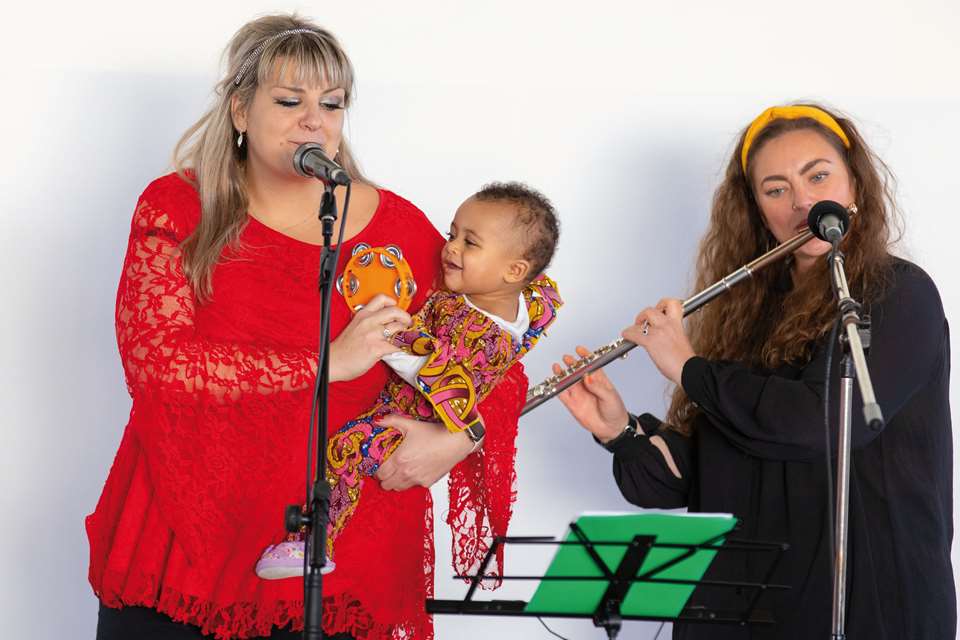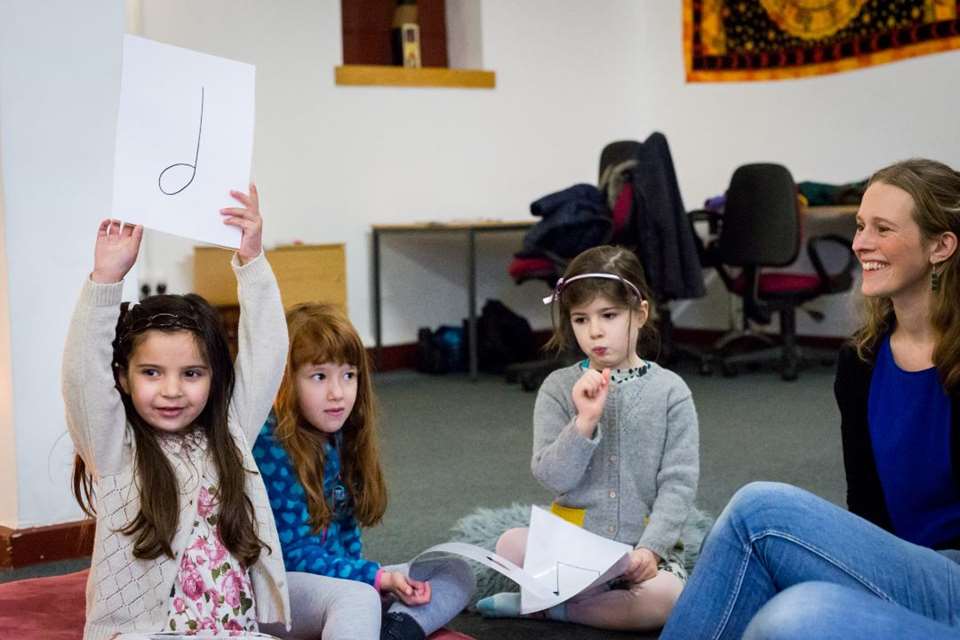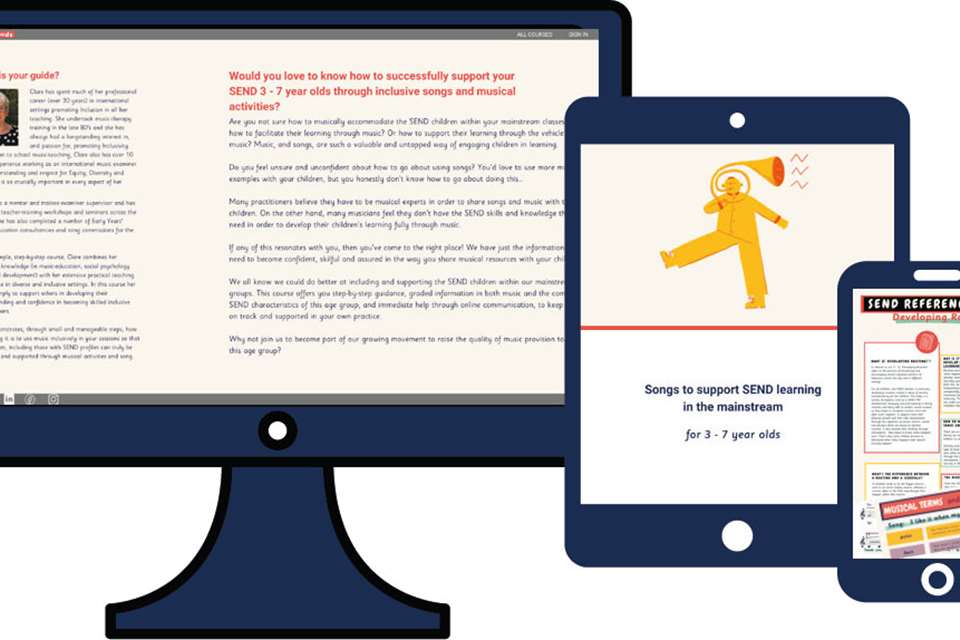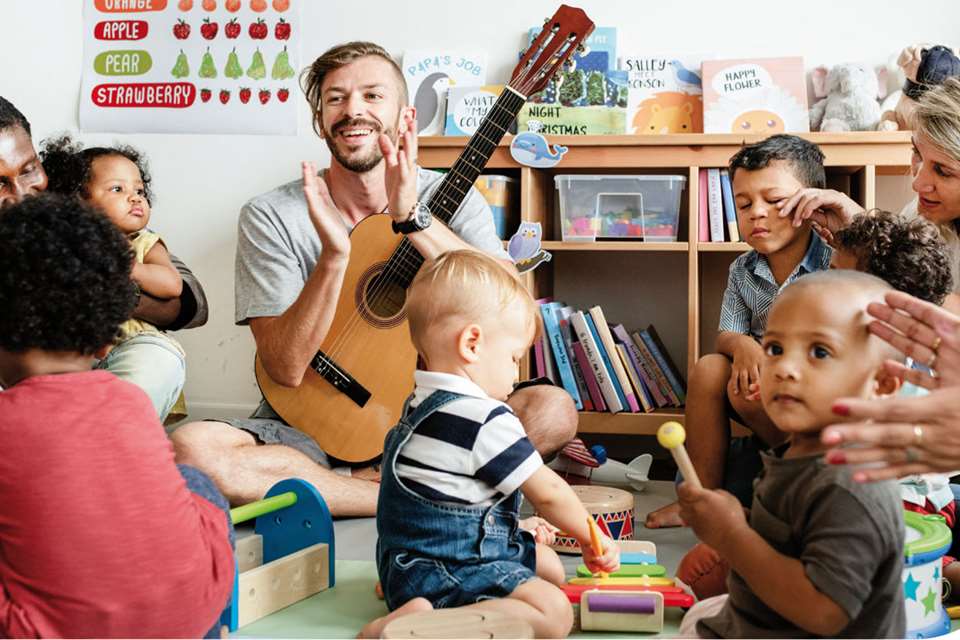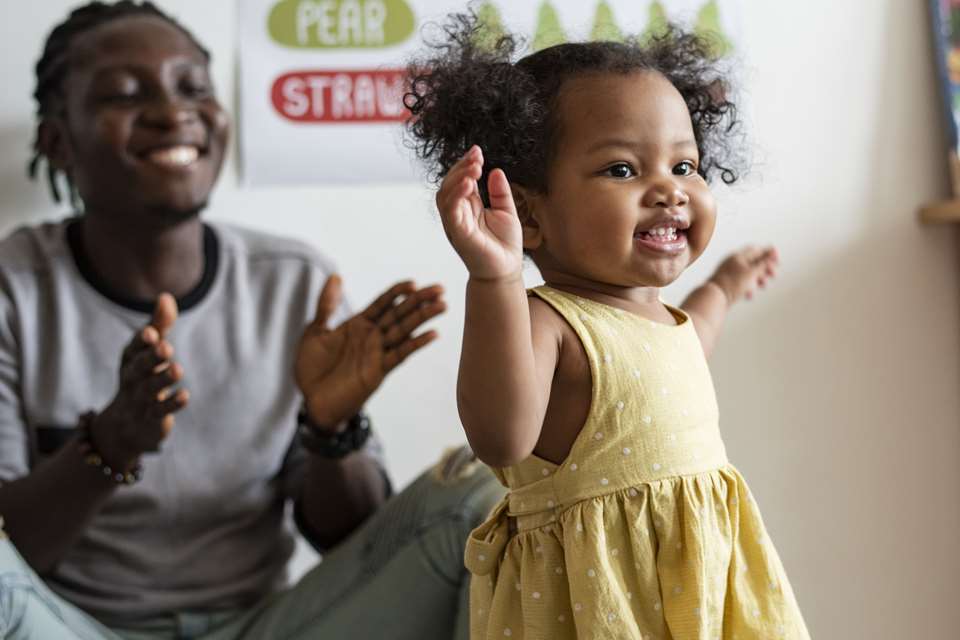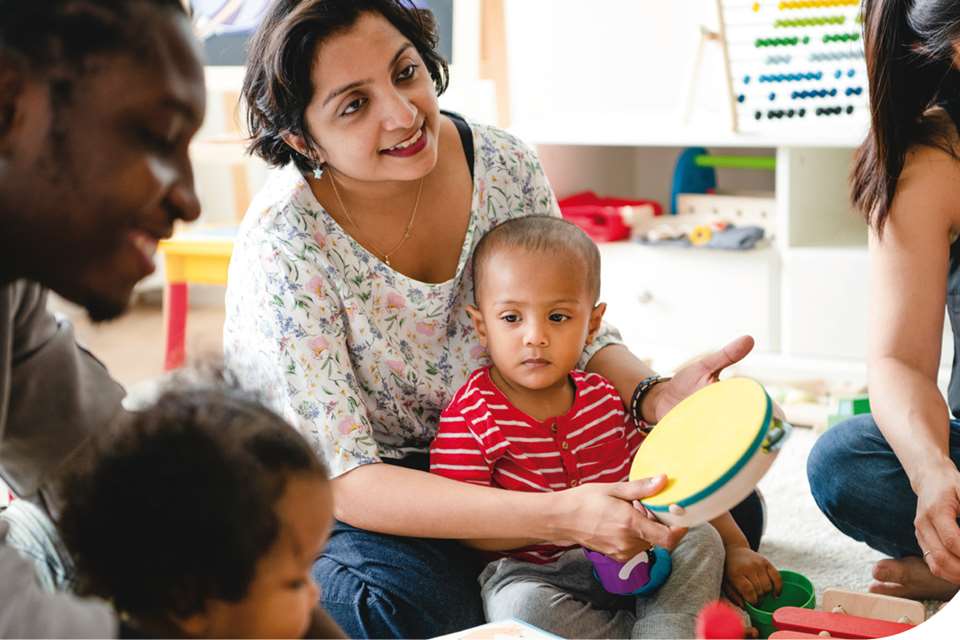Theatre un-cooped: Chickenshed's early years Tales from the Shed
Ellie Rashid
Tuesday, February 1, 2022
In between shows and street performances, Ellie Rashid manages to catch Chickenshed's Georgie Pratten, who talks us through what makes Tales from the Shed such a unique theatre experience and offers educators some gems to put into practice.
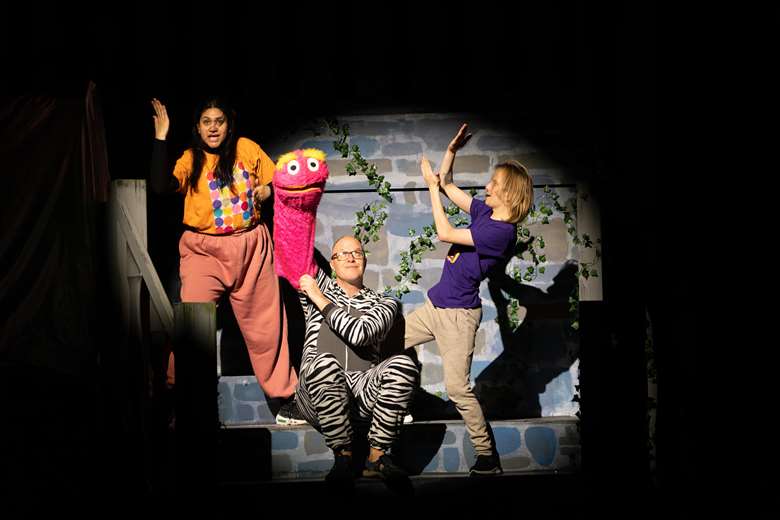
ALL IMAGES: FIONA YARON AND DANIEL BEACOCK
Chickenshed is a North London based theatre company that has been running since 1974. Inclusivity is at the heart of the company's ethos, bringing young people together from all social, economic and cultural backgrounds. As well as delivering performances and street performances, they also run educational courses and membership programmes.
Tales from the Shed is one of many wonderful outreach projects pioneered by the artists at Chickenshed. Shows are colourful, informal, interactive, and sensory – perfect for an early years (ages 0–5) audience with lots of music, dancing and puppets. What is so unique about Tales from the Shed is that it is more than just entertainment. It bridges theatrical and musical performance with interactive pedagogy, where early years participants have the opportunity to share the stage with performers.
This creates an enabling environment, allowing opportunities for facilitation and child-led activity to thrive. Facilitation is an essential practice that works when participant's ideas are validated and endorsed – this is what gives them power and confidence in their music-making, creative decision making, and educational learning, allowing positive relationships to be built.
Georgie Pratten, a member of Chickenshed's artistic team involved in Tales from the Shed, says: ‘We facilitate the play, development of imagination and expression rather than just performing to the children.’ She gives the example of the warm-up the team does at the beginning of each show, in which they invite the children to share their own ideas. ‘We're actualising their choices,’ Pratten continues. ‘This way, they can see they have an impact on what we do and that the show is not just us performing to them; it's powered by them.
‘If there's something they want to see or do, where possible, we'll do it. If they've been to the show before and they've seen a character come out on stage, we'll bring that character out and get them to say hi again; or if they want to spin around all day, we'll spin! So, it is very much in their world – it's almost a new medium of performing with an audience rather than for an audience.’
Facilitation and improvisation
Marrying performance and facilitation involves thinking on the spot and letting go of rehearsed plans. Although this can feel intimidating, it is essential for facilitating a safe space and following the flow of child-led ideas. Pratten provides examples of methods to employ more interactive and improvisational based practices for educators to try: ‘The first thing I would say is to ask the audience what they want to do. Setting this space is great for interactive practice. From the beginning, get them involved so that they know they don't have to just sit and be quiet.’
She goes on to explain that before a show starts, the team often gives the children a set of ‘rules’, which clarify that they don't have to stay seated or still. ‘It's almost like a list of what you can do, rather than what you can't do,’ adds Pratten. ‘The second thing – which could help with the improvisational aspect – is that we have a big catalogue of knowledge within our team. There's never a script. We might roughly plan a session but because everyone has this bank of knowledge, we're able to be flexible.’ According to Georgie, this means that the performances are always ‘alive and new’ and never become ‘over-rehearsed and stagnant’. ‘We're improvising so much,’ she adds, ‘often led by the children's imagination and preferences.’
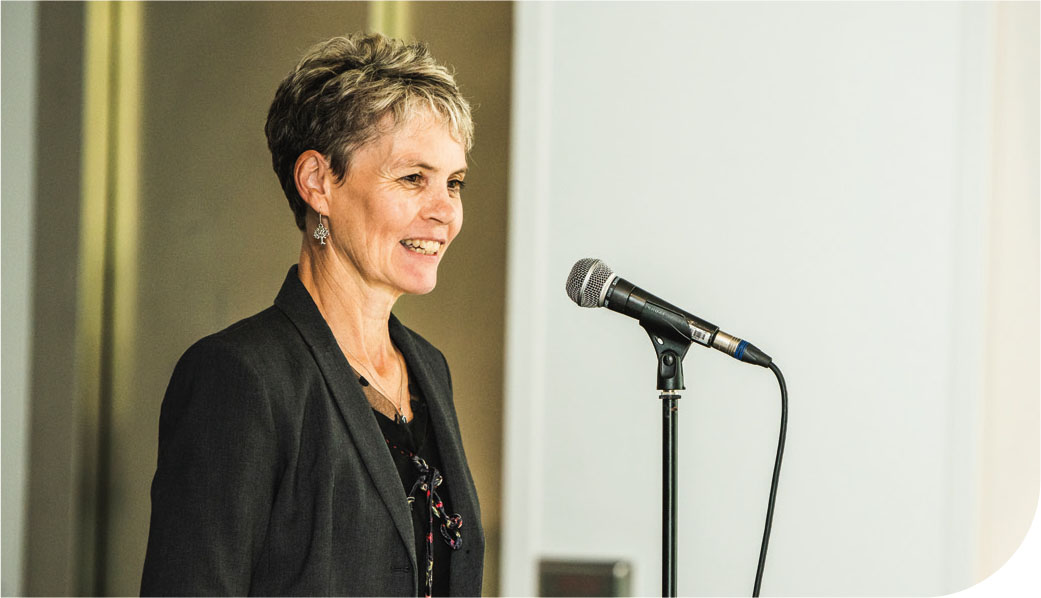
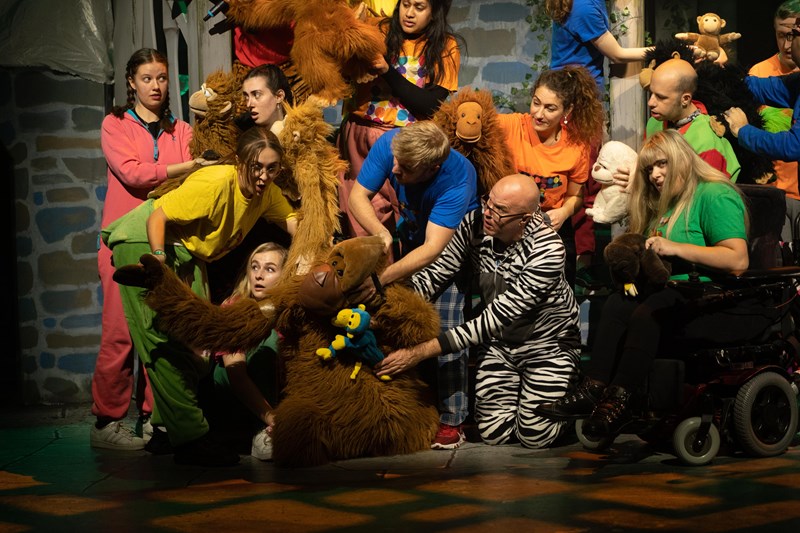
Led by inclusive practice
This bank of knowledge enables flexibility and something to fall back on when thinking on the spot mid-performance, which can be helpful when things don't always go according to plan – for example, audience members not responding verbally or participating conventionally. From shy children to those with special educational needs and disabilities, we often observe this in early years settings.
In light of Chickenshed's inclusive practice, Pratten tells me how her team might deal with a scenario like this: ‘If we have an audience who we sense might not want to get involved as much (such as shy children or older children who just want to sit and watch), that is fine. We do a dance or sketches where we talk more, so they can get involved if they want to but equally there's no need to if they don't.’
She continues: ‘If we're doing a show where children are just running around, we'll make that a part of the performance, for example, bringing in a character who likes to run. We'll pick up on what they're giving us and if they're not wanting to interact as much, then we have that bank of knowledge with different things to pull from and different methods to engage them with because we work with so many audiences and schools.’
Never too young
Within this ‘bank of knowledge’ is the company's musical set-up, including drum sets and the sitting drum, which children and parents are invited to play. Instruments are placed around the space so that participants can collaborate with performers and embrace different sounds to accompany the stories. Pratten brings in the harp, which keeps shows exciting, sensory, and visual. Some of the children who are non-verbal or do not have language are able to make sounds. The artists interact with these sounds and sometimes even harmonise with them on the spot. The idea that no two performances will be the same.
As Chickenshed continues to produce entertaining and sensory productions for young children, families and adults, they also have new projects on the horizon inspired by people and societal issues: ‘At the moment, we're looking to do some work with Barnet and we've got a project called “How to make a better world”, which is based on a book by Keilly Swift.’ This project, Pratten explains, will incorporate issues such as the environment, healthy eating, and self-care. ‘We've also got another street performance project, where we'll be training people to do street performance. We've got so much going on and so much that we want to happen, and we're always looking for new people to work with. We always keep our eyes open.’


